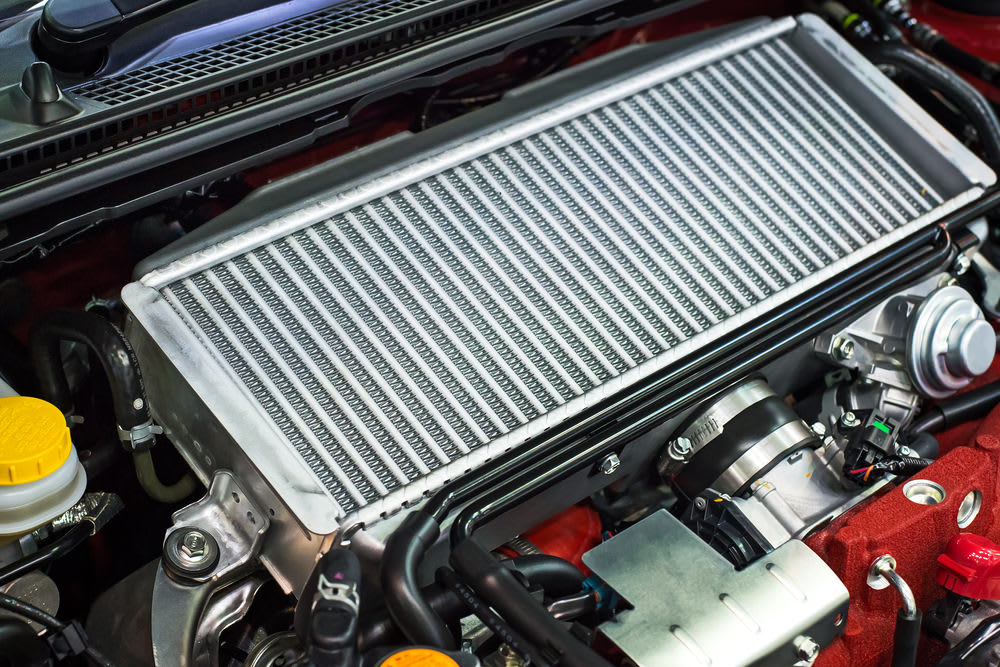

Given that car engines work on the principle of combustion – that is, the explosion of the air/fuel mixture inside the cylinders – it should be no surprise that they make a lot of heat. That, combined with the friction generated by the many moving parts inside an engine, means that engine thermal control is vital. Engines that operate at lower temperatures are more fuel efficient, produce more power, and last longer. It’s the job of the radiator to keep an engine running at the ideal temperature and prevent overheating.
The vast majority of cars use a closed-loop liquid-based cooling system to regulate engine temperatures (some older vehicles are air-cooled). Liquid-cooled engines use a few common parts:
- Radiator
- Water Pump
- Coolant
- Thermostat
- Coolant Jacket
- Heater Core
Engines have a system of channels which run throughout the block and cylinder head known as the coolant jacket. Specially-formulated liquid coolant (also known as antifreeze) mixed with water flows through these channels, absorbing engine heat. The water pump keeps the coolant flowing, the rate of which is regulated by the thermostat. Eventually the hot coolant flows from multiple coolant jacket channels into a single outlet before it reaches the radiator.
The radiator’s main function is to provide a high surface area for hot coolant so that heat can be effectively dissipated. Once it enters the radiator at one end, the single outlet splits into multiple smaller tubes, known as core tubes. The core tubes run through numerous thin sheets of folded metal called cooling fins, which further increase the surface area. Radiators are usually mounted at the front of the engine behind the grille, on top under a hood scoop, or some other area that receives high air flow. That way, as cool outside air passes over the cooling fins, heat dissipates as the car moves forward. A fan works to keep cool air moving over the radiator if the car is stopped or driving slowly in traffic.
Pressure generated by the water pump maintains the flow of coolant through the radiator. Once heat has dissipated, the core tubes join again at the other end of the radiator, pumping cold coolant through the coolant jacket again. It’s a continuous cycle of heating and cooling that occurs the entire time your engine is running.
A properly-working radiator and cooling system is vital to your engine’s function, so if there’s ever an issue don’t delay repairs. A coolant leak, blocked radiator, faulty thermostat, or bad water pump can all cause your engine to overheat rapidly. If your car is running hot or overheating, have a certified mobile technician from YourMechanic inspect the problem right away.



